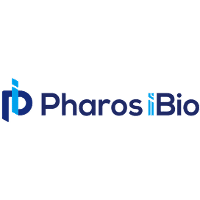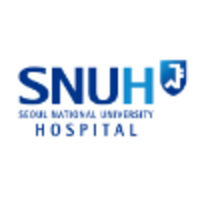Request Demo
Last update 08 May 2025

Pharos iBio Co., Ltd.
Last update 08 May 2025
Overview
Tags
Respiratory Diseases
Digestive System Disorders
Neoplasms
Biological products
Disease domain score
A glimpse into the focused therapeutic areas
No Data
Technology Platform
Most used technologies in drug development
No Data
Targets
Most frequently developed targets
No Data
| Disease Domain | Count |
|---|---|
| Neoplasms | 1 |
| Top 5 Drug Type | Count |
|---|---|
| Biological products | 1 |
| Top 5 Target | Count |
|---|---|
| DDR1 x NRAS x Raf kinase | 1 |
Related
1
Drugs associated with Pharos iBio Co., Ltd.Target |
Mechanism DDR1 antagonists [+2] |
Active Org. |
Originator Org. |
Active Indication |
Inactive Indication |
Drug Highest PhaseIND Application |
First Approval Ctry. / Loc.- |
First Approval Date- |
2
Clinical Trials associated with Pharos iBio Co., Ltd.NCT04678102
A Phase I, Open-label, Dose-finding Study to Assess the Safety, Tolerability, and Pharmacokinetics of PHI-101 in Patients With Platinum-Resistance/Refractory Ovarian Cancer
This study aims to assess the safety and tolerability of PHI-101 in patients with platinum-resistance/refractory ovarian, fallopian tubal, and primary peritoneal cancer. This study also evaluates the pharmacokinetics of PHI-101 and efficacy of PHI-101 during treating platinum-resistance/refractory ovarian, fallopian tubal, and primary peritoneal cancer.
PHI-101 is a CHK2 inhibitor that is a checkpoint kinase binding specifically to CHK2, rather than CHK1, and it inhibits the DDR system by inhibiting the ATM-CHK2 pathway, which is activated in response to DSBs. When a high-grade serous ovarian (HGSO) cancer cell line and various ovarian cancer cell lines (CAOV3, OVCAR3, SK-OV-03, and SW626) were treated with PHI-101 in a non-clinical study, the therapeutic effect of PHI-101 against ovarian cancer was demonstrated by a decrease in viability of ovarian cancer cells. In addition, a stronger growth inhibition effect was observed compared to that of treatment with olaparib or rucaparib alone, and a much stronger inhibition effect was observed when concomitantly used with paclitaxel, cisplatin, and topotecan. Based on the aforementioned results of the non-clinical studies, the potential of PHI-101 as a new treatment or concomitant cytotoxic chemotherapeutics for patients with ovarian cancer who are resistant to existing antineoplastic drugs was confirmed.
PHI-101 is a CHK2 inhibitor that is a checkpoint kinase binding specifically to CHK2, rather than CHK1, and it inhibits the DDR system by inhibiting the ATM-CHK2 pathway, which is activated in response to DSBs. When a high-grade serous ovarian (HGSO) cancer cell line and various ovarian cancer cell lines (CAOV3, OVCAR3, SK-OV-03, and SW626) were treated with PHI-101 in a non-clinical study, the therapeutic effect of PHI-101 against ovarian cancer was demonstrated by a decrease in viability of ovarian cancer cells. In addition, a stronger growth inhibition effect was observed compared to that of treatment with olaparib or rucaparib alone, and a much stronger inhibition effect was observed when concomitantly used with paclitaxel, cisplatin, and topotecan. Based on the aforementioned results of the non-clinical studies, the potential of PHI-101 as a new treatment or concomitant cytotoxic chemotherapeutics for patients with ovarian cancer who are resistant to existing antineoplastic drugs was confirmed.
Start Date17 Dec 2020 |
Sponsor / Collaborator |
NCT04842370
A Prospective, Phase Ia/Ib, Multicenter Study to Evaluate the Safety, Tolerability, Pharmacokinetics and Pharmacodynamics of the FLT3 Inhibitor, PHI 101, Alone in Subjects With Relapsed or Refractory Acute Myeloid Leukemia (AML)
The purpose of this study is to find out the maximum tolerable dose and safety of PHI-101, novel FLT3 inhibitor in the treatment of relapsed or refractory AML for patients who have received standard therapy or cannot tolerate standard therapy, and/or for whom no standard therapy exists.
There will be two parts to the study, which we will call Phase Ia and Phase Ib. Phase Ia is called the dose escalation. Approximately 20 to 24 patients are planned to be enrolled into Phase Ia. Phase 1a is conducted to determine the best dose and schedule of dosing of PHI-101 to be used in Phase 1b. There will be 5 different dose levels of PHI-101 given to patients in Phase Ia.
Phase Ib is called the dose expansion. Approximately 14-34 patients (approximately 14-17 patients in each of the 2 cohorts planned) of each cohort are planned in Phase Ib based on study design. Phase Ib is also being conducted to assess anti-leukemia response, changes in transfusion requirements, and safety of PHI-101 at the dose level identified during Phase Ia.
There will be two parts to the study, which we will call Phase Ia and Phase Ib. Phase Ia is called the dose escalation. Approximately 20 to 24 patients are planned to be enrolled into Phase Ia. Phase 1a is conducted to determine the best dose and schedule of dosing of PHI-101 to be used in Phase 1b. There will be 5 different dose levels of PHI-101 given to patients in Phase Ia.
Phase Ib is called the dose expansion. Approximately 14-34 patients (approximately 14-17 patients in each of the 2 cohorts planned) of each cohort are planned in Phase Ib based on study design. Phase Ib is also being conducted to assess anti-leukemia response, changes in transfusion requirements, and safety of PHI-101 at the dose level identified during Phase Ia.
Start Date08 Jun 2020 |
Sponsor / Collaborator |
100 Clinical Results associated with Pharos iBio Co., Ltd.
Login to view more data
0 Patents (Medical) associated with Pharos iBio Co., Ltd.
Login to view more data
14
Literatures (Medical) associated with Pharos iBio Co., Ltd.21 Apr 2025·Cancer Research
Abstract 4371: PHI-501 as a potent pan-RAF/DDRs inhibitor suppresses lung cancer cell proliferation and overcomes KRAS G12C inhibitor resistance
Author: Han, June ; Yoon, Jeong Hyeok ; Hwang, Hee-sun ; Lee, Ki-Young ; Sung, Gi-Jun ; Kwon, Jinsun ; Kim, Ji Young ; Kim, Kyu-Tae ; Nam, Ky-Youb ; Moon, An-Na
05 Nov 2024·Blood
PHI-101, a Novel FLT3 TKI, Shows Clinical Efficacy in Relapsed/Refractory FLT3-Mutated AML
Author: Cheong, June-won ; Hong, Junshik ; Kim, Hee-Je ; Shin, Ho-Jin ; Im, Jeejin ; Nam, Ky-Youb ; Lee, Jeong-Ok ; Yoon, JeongHyeok ; Li, Li ; Lee, Yoo Jin ; Yoon, Sung-Soo ; Nguyen, Bao ; Han, June ; Lee, Je-Hwan ; Kim, Kyu-Tae ; Sung, Gi-Jun ; Clarey, Joseph ; Cho, Byoung-Sik ; Shin, Dong-Yeop ; Small, Donald ; Jang, Jun-Ho ; Ahn, Jae-Sook
22 Mar 2024·Cancer Research
Abstract 4915: Identification and validation of novel prognostic genetic markers in HER2-negative advanced gastric cancer (AGC) by artificial intelligence (AI) deep learning and machine learning algorithm
Author: Chung, Hyun Cheol ; Che, Jingmin ; Rha, Sun Young ; Lee, Yaeji ; Park, Sejung ; Lee, Choong-Kun ; Kwon, Woo Sun ; Heo, Seok-Jae ; Kim, Minseok
100 Deals associated with Pharos iBio Co., Ltd.
Login to view more data
100 Translational Medicine associated with Pharos iBio Co., Ltd.
Login to view more data
Corporation Tree
Boost your research with our corporation tree data.
login
or

Pipeline
Pipeline Snapshot as of 23 Feb 2026
The statistics for drugs in the Pipeline is the current organization and its subsidiaries are counted as organizations,Early Phase 1 is incorporated into Phase 1, Phase 1/2 is incorporated into phase 2, and phase 2/3 is incorporated into phase 3
IND Application
1
Login to view more data
Current Projects
| Drug(Targets) | Indications | Global Highest Phase |
|---|---|---|
PHI-501 ( DDR1 x NRAS x Raf kinase ) | Colonic Cancer More | IND Application |
Login to view more data
Deal
Boost your decision using our deal data.
login
or

Translational Medicine
Boost your research with our translational medicine data.
login
or

Profit
Explore the financial positions of over 360K organizations with Synapse.
login
or

Grant & Funding(NIH)
Access more than 2 million grant and funding information to elevate your research journey.
login
or

Investment
Gain insights on the latest company investments from start-ups to established corporations.
login
or

Financing
Unearth financing trends to validate and advance investment opportunities.
login
or

AI Agents Built for Biopharma Breakthroughs
Accelerate discovery. Empower decisions. Transform outcomes.
Get started for free today!
Accelerate Strategic R&D decision making with Synapse, PatSnap’s AI-powered Connected Innovation Intelligence Platform Built for Life Sciences Professionals.
Start your data trial now!
Synapse data is also accessible to external entities via APIs or data packages. Empower better decisions with the latest in pharmaceutical intelligence.
Bio
Bio Sequences Search & Analysis
Sign up for free
Chemical
Chemical Structures Search & Analysis
Sign up for free
